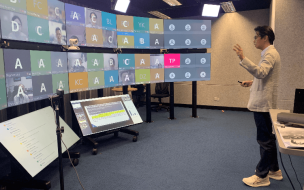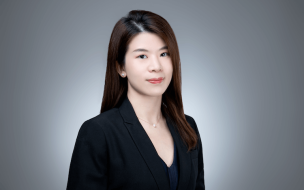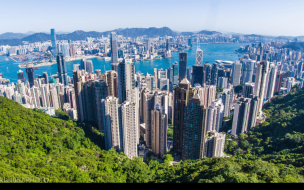While it was never his intention, Marc has since completed a career triple jump—changing location, role and industry. He’s moved on from a finance role at KPMG in the Netherlands, to become head of strategic planning and growth at Ports 1961—a Canadian luxury fashion brand—in Hong Kong.
For Marc, the HKUST MBA—ranked in the top-15 of the Financial Times’ Global MBA Rankings for nine consecutive years—was key to making his transition a success. The HKUST MBA’s intimate class size—around 120 students each year—gave Marc a solid Asia-based network and easy access to leading professors who are successful businessmen in their own right.
Marc worked for Tommy Hilfiger and Crocs Asia after completing his MBA in 2011, before joining Ports 1961 in October 2017.
BusinessBecause caught up with Marc to find out more.
How did the HKUST MBA help you transition from finance to luxury?
I didn’t set out to switch careers as I was aware that switching careers and moving to a different region at the same time was a challenging task.
During my HKUST Business School MBA though, I looked at fields such as strategy and marketing, different cultures, and different ways of approaching problems. This made me think more strategically and more mindful of different cultures. I was the only European with others from America, Asia, and China and learned how to work effectively despite our differences.
When I graduated, I was still in contact with connections from my career beforehand, where I was involved with the luxury fashion industry. I knew the CFO of Tommy Hilfiger quite well and he asked me to join once I completed my degree.
The MBA definitely helped me widen my perspective on business. It made the career change easier and faster than it would have been without the degree.
How else did you profit from your MBA experience?
A year out of work is good for anyone. It gets you out of the circle of always rushing and working and gives you chance to think about yourself—this starts with the application process.
Throughout the MBA, you spend so much time with different people from different industries and you get exposure to new career perspectives. From this, I’ve reshaped my career in Asia—this probably wouldn’t have happened without my MBA.
Why did you decide to pursue an MBA at HKUST?
I felt HKUST Business School would prepare me for a career in Asia. I also realized that to take my career to the next level, I needed more expertize than purely finance concepts and skills.
HKUST focused heavily on business in Asia and the quality of the professors was fantastic—successful businessmen from different industries and cultures across Asia.
What makes Hong Kong a good destination for MBA students?
It’s where West meets East. Although China is becoming more and more important, Hong Kong is still the major gateway into Asia. Many global companies have their Asia headquarters there.
What advice do you have for anyone considering an MBA?
Some think they’ll do an MBA and everyone will hire them, but that’s over. An MBA makes you a more all-round professional, especially through case-based learning. In addition, it opens up a network of professionals. It’s a great platform, but it all comes down to you. Get out of your comfort zone and create these opportunities.
Student Reviews
HKUST Business School








